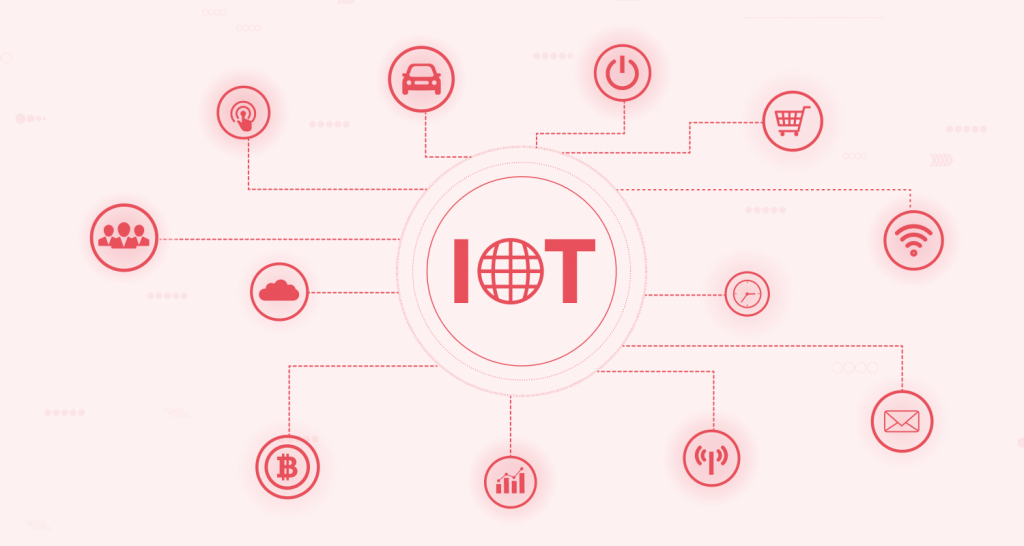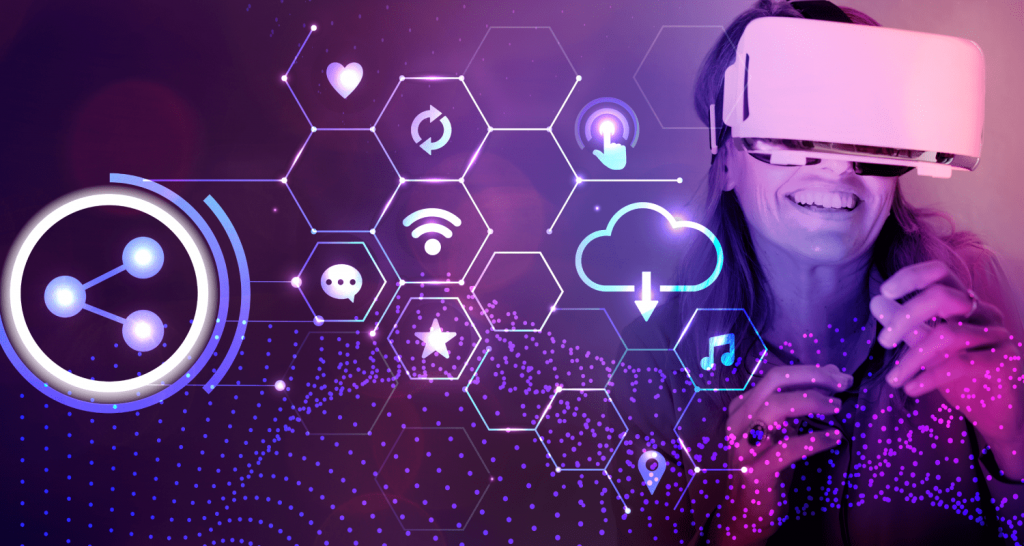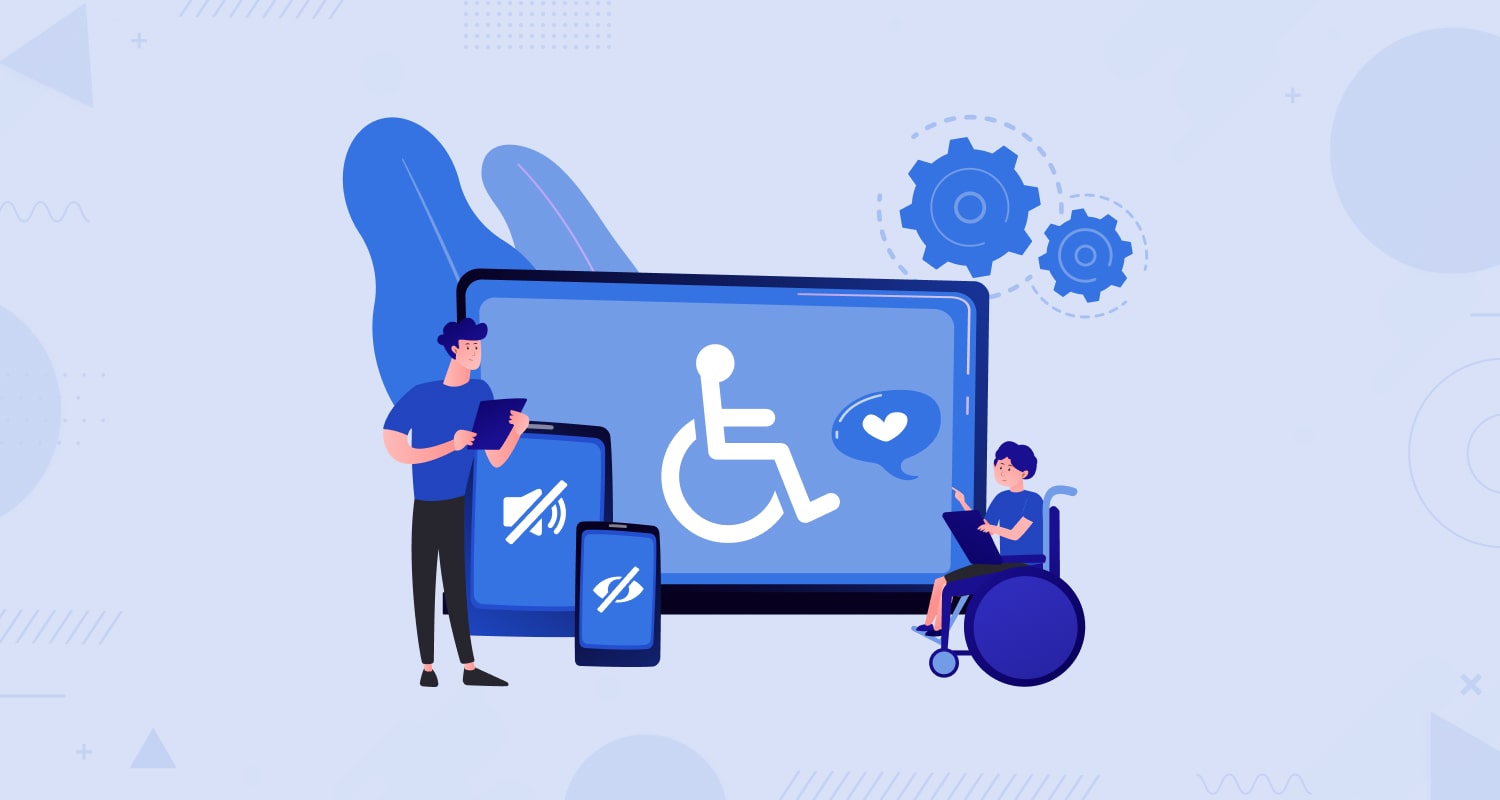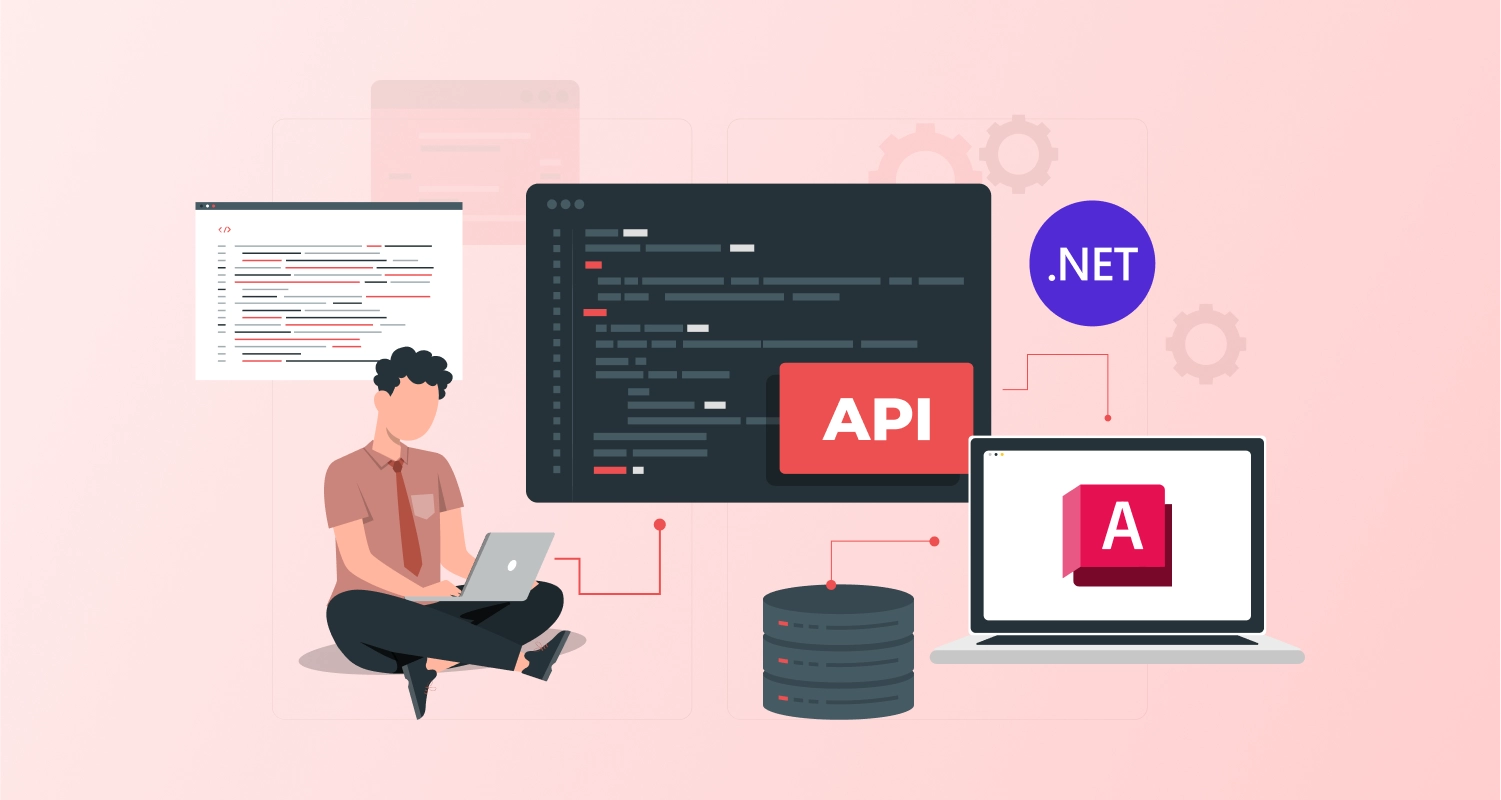Every year offers new challenges for certain organizations in the ever-evolving field of website development. Therefore, in order to remain competitive, firms must adopt the latest practices in web development.
You need a robust online product to help you stand out in today’s crowded digital market. On the Internet, there are more than 1.58 billion websites, and there are around 5 billion people who are daily active users.
Yet, it might be crucial to zero in on the most efficient web development trends that can benefit your company. Therefore, to save your time, we have compiled a list of web development trends by analyzing industry needs across different IT domains.
Many of these trends can already be seen on the internet, but their prevalence is only expected to grow in the coming years. In this article, we will look at the most talked about web design and development trends of 2025.
Top 18 Web Development Trends to Follow in 2025
Blockchain Technology-Related Web Design
Data stored in the Blockchain is protected and can be kept for an extended period of time. In contrast to more conventional systems, it stores data in blocks that are chained together. It also enhances transaction security and gets rid of human error in addition to its many other benefits.
Bitcoin, digital money, relies on this underlying technology. In the recent decade, widespread use of cryptocurrencies like Bitcoin has resulted from their acceptance by significant payment platforms.
Through blockchain technology, users can conduct online transactions securely and privately without needing a trusted third party to verify or authenticate the transactions.
As a result of its ability to mitigate the effects of cybercrime, this technology might have far-reaching effects on various industries. Blockchain Technology dramatically facilitates the adoption of open-source systems in web development.
Adaptive Web Applications (PWA)
Using standard web technologies like HTML and JavaScript, developers create advanced web applications (PWAs). To access a PWA, all you need is a browser, and you’re good to go. Its capacity to provide a satisfying interaction for the user has contributed to the technology’s rise in popularity.
Many people choose PWA over native mobile applications because of this possibility. Even when the user isn’t connected to the internet or using a slow or unstable network, PWAs provide a fast and responsive experience.
A growing number of web design firms worldwide are now providing their customers with PWA options. PWAs not only give a fantastic interface but offer additional benefits such as push alerts and offline access to cached information.
Internet of Things (IoT)

The term “Internet of Things” (IoT) refers to a system in which data is sent automatically between devices connected to the internet. It’s one of the most exciting new directions in website creation.
Mobile devices were responsible for 54 percent of all internet traffic worldwide. In 2025, the concept of internet-connected items is no longer science fiction.
Regarding encouraging continual data sharing, IoT has emerged as one of the most compelling web development trends. It allows businesses to interact with clients to create unique encounters quickly.
Moreover, IoT may be leveraged to build sophisticated communication across various operational models and website designs. Cameras, sensors, signaling equipment, and so on are only some of the many uses for this technology that make it easier to meet customers’ needs.
Lightning-Fast Mobile Pages (AMP)
In 2025, AMP will be the standard for mobile-friendly websites. It’s the result of a joint effort between Google and Twitter to improve the load time of mobile websites.
Pages optimized using Accelerated Mobile Pages (AMP) load quickly and perform well in search engine rankings. Compared to non-AMP sites, which may take up to 22 seconds to load, AMP pages load in roughly 2 seconds.
AMP technology developers are adopting as the internet shifts toward a user-centric focus. In addition, AMP enables businesses to reduce the cost of user experience (UX) while also attracting people with slow internet connections. The solution was developed to boost SMBs by letting them design mobile-friendly websites.
Optimizing for Voice Search

Optimizing a website for voice search results is a straightforward definition of voice search optimization. Voice assistants and the Internet of Things have contributed to the rapid rise in popularity of voice-recognition-enabled devices.
In the following year, these gadgets will be able to identify individual voices and tailor their interactions with users using AI. Voice-activated self-standing gadgets and voice optimization for applications and webpages are cutting-edge developments in web development.
The proliferation of AI-powered gadgets has made speech recognition a time-saver and a boon to multitaskers. As a result of this meteoric rise, optimizing websites for voice search will have to be included in every severe web developer’s inventory of cutting-edge tools.
Developing using APIs First
In API-first development, the APIs take center stage, as the name would imply. New technologies need to link existing ones, and APIs make it possible. It’s been almost 20 years since APIs first appeared. However, developers only cared about product development in the past, and connecting software and gadgets was an afterthought.
But API-first development has several advantages, the most crucial being customer-centric and you can achieve it when you hire web developers. The approach promotes concurrent programming, reducing development time and expenses.
Making sure all APIs are trustworthy and consistent also lessens the possibility of a project failing. Therefore, API-first development is rapidly becoming a best practice for building modern websites.
Chatbots Powered by Artificial Intelligence

A chatbot enhanced by artificial intelligence is much superior to its non-intelligent counterparts. This technology employs NLP and ML to comprehend user goals and mimic human interaction. Robots powered by artificial intelligence can solve problems around the clock and analyze user behavior.
Experts predict that in the future, self-learning bots will replace human support managers, allowing businesses to save money. It’s simple to include an AI-powered chatbot in standard/business websites and PWAs.
Conversational AI chatbots are all the rage right now, and for a good reason: they can improve customer service and boost revenue. They may handle frequently asked questions, direct customers to the appropriate human helper, and even process orders. Most of the time, chatbots can answer urgent questions and address customer problems immediately.
Push Notifications
Push notifications, often known as pop-ups, may be clicked on by the user at any time while online. Businesses use this technology to quickly disseminate news, promotions, and other communications to customers. It’s adaptable to computers, mobile phones, and tablets alike.
One of the most popular aspects of PWAs is Push Notifications, as we witnessed. It is a powerful method of attracting and keeping the interest of consumers. The technique has already been included in major websites like Facebook and Google web apps.
It became clear that many web development companies in India will have embraced this technology by 20252. These real-time updates will also likely displace more traditional contact forms like email.
Storefronts, preexisting weblogs, and other sites may all benefit from Push Notifications’ seamless incorporation into their design. So, in 2025, we may expect to see a rise in the prevalence of push notifications.
Machine learning
Machine learning-based content customization, also known as predictive content personalization, is a cutting-edge AI-driven method for delivering highly relevant material to each user in real time.
Applying Machine Learning (ML) in web development has led to a marked uptick in the quality of services offered to consumers. Programmers use ML to make it possible for apps to process data, search for trends, and tailor their user experiences.
Several of the world’s most successful businesses have adopted this technology to provide a better service to their customers. Airbnb and Netflix, for example, employ ML to tailor search results to individual users.
Thanks to ML, you can tailor your messages to individual individuals rather than a whole demographic. It’s possible to track each person individually and tailor your offerings to their preferences.
Algorithms provide personalized experiences for users depending on their goals. One exciting development in ML is content customization, which enables you to respond to your audience’s interests and preferences by monitoring their interactions with your site.
Activated User Interface (Ui) for motion
Motion UI is a frontend framework for creating mobile- and tablet-friendly websites. These technological advancements enable programmers to implement animation in native app contexts. It has a library of motion effects that can be dropped into your next design without any effort.
A website’s design and functionality go hand-in-hand. Websites that are both functional and aesthetically pleasing are more likely to be visited by their intended audience. Motion UI is a new kind of design that streamlines the user experience of digital goods.
SASS libraries, including various animated components, provide the basis for the approach’s CSS transitions and bespoke animation integration. Motion UI is useful for making a user-friendly interface that leads to a pleasurable experience. As it streamlines the UI design process, it is one of the most essential movements in web app development.
Ensure Data Safety
Data security is keeping one’s digital information safe from unauthorized access or manipulation. Your company and reputation might take serious hits from cyber criminals.
This means that by 2025, data security will have become a popular topic in the field of web development. The safety of user information is now an essential consideration for every online project.
There will be great improvements in AI’s ability to aid with data security in the near future. The most cutting-edge technology now available is biometric logins that use fingerprint and retina scans driven by artificial intelligence. Additionally, AI-driven programs make it simpler to identify potential dangers.

Multi Experience
The term “multi-experience” refers to integrating several digital channels (websites, applications, chatbots, wearables, etc.) into a unified user journey for a single application. This technology exists to provide a continuous and reliable user experience.
In 2025, it will be expected for all new websites to provide several user experiences. Your prospective clients often utilize many modern smart devices, not only smartphones, tablets, and computers. In addition to smartphones, tablets, and laptops, wearables, augmented reality/virtual reality modules, voice assistants, and Internet of Things devices exist.
You should aim for multi-experience, where you can connect with clients across all devices they likely use, in addition to having a dynamic website that adjusts to typical devices. In 2025, your company’s chances of being the industry leader may be improved by concentrating on developing a multi-experience application.
Protection against Cyber Attacks
Computer and network security refer to keeping sensitive data from falling into the wrong hands or being corrupted or deleted by malicious actors. In 2025, it will become even more crucial since as we automate more procedures, the danger of data theft rises along with it.
You may collaborate with well-known cyber security firms to access cutting-edge technology in this area, such as algorithms designed to defend consumers against phishing scams. Mobile security and the web development trends toward protecting interactions between IoT devices are also worth watching.
One of the newest innovations in cyber security is the creation of comprehensive privacy laws like Europe’s General Data Protection Regulation (GDPR). These cutting-edge advancements in cyber defense allow for more effective company continuity management and streamlined data protection.
Micro-Frontends
To make frontend monoliths more manageable, a current trend in web development is known as “micro frontends.” Microservices Architecture has gained traction in recent years because it allows programmers to create more adaptable backends than their predecessors.
However, frontends still have issues due to using monolithic codebases to develop user interfaces. Thankfully, this problem is eliminated with Micro Frontends.
The technique aids programmers in slicing a complex front end into smaller, more manageable pieces, which can then be individually tested and released. In addition, a web application’s uniqueness might be the result of the combined efforts of several teams that each work on a distinct part of the application’s front end before assembling them. This aids the general development process and facilitates app updates.
Virtual Reality

In computer-generated virtual reality (VR), the user is immersed in a digitally-generated, simulated version of a real-world setting. In 2025, we may anticipate a surge in incorporating VR technology into site design due to its widespread acceptance. Since user satisfaction is of utmost importance, virtual reality (VR) has emerged as a significant shift in web design.
Server-Free Design
You don’t have to worry about managing server software or hardware when you use the serverless architecture (also known as serverless computing) style of software development.
This technique makes this technique all possible to avoid system overload, data loss, and excessive development expenditures. New to web development, server less architecture has the backing of industry giants like Amazon Web Services.
Using this architecture, you can control machine resource use from a cloud service rather than a traditional server. The sustainability of the internet is improved by serverless design, in addition to the previously listed advantages. It is anticipated that the technology will be extensively utilized in the following years for IoT applications and goods that need complicated backend queries.
The Cloud computing
Cloud computing is the practice of relying on remote servers for one’s computer needs. More and more businesses adopted this practice before, during, and after the epidemic, making it a notable development in the workplace.
Innovations are likely to emerge in 2025. There are several advantages to using this technology, including the fact that it helps prevent data loss and data overload, is cheaper to design, and has a more versatile and secure framework.
Programs Comprised of Only One Page (SPA)
Simply said, a single-page application is web software that can function without being repeatedly reloaded. With this, the user would have a more organic and unobtrusive experience.
SPAs include social networking sites and messaging platforms like Facebook, Google, and Twitter. In 2025, SPAs will become the norm for building functioning websites.
User attention is more easily maintained in single-page apps because of their apparent swiftness of operation. In contrast to traditional websites, where the user must wait for the page to load before seeing any results, they may visit those results immediately.
Conclusion
In light of these shifts, customer interactions with responsive web design companies in India will develop in new ways. Using these tools, you may increase your user retention rates while staying ahead of the competition.
Choosing a reliable web development firm is essential if you want to reap the benefits of using one of these key web development technologies to achieve your business goal.
Frequently Asked Questions
Is web development still in demand by 2025?
The ability to create websites is in great demand and highly compensated all across the globe, making it an excellent career option. Due to the fact that it does not need the completion of four years of college, it is one of the most widely available high-paying industries.
What is the future of web development in 2025?
In 2025 and beyond, progressive web apps, single-page applications, serverless architecture, and motion user interfaces will all be very visible. For the foreseeable future of the internet, general technologies like AI, voice search, Blockchain, and the Internet of Things will remain popular.
What is the next big thing in web development?
Internet of Things refers to a system in which data is sent automatically between devices connected to the internet. It’s one of the most exciting new directions in website creation. In 2025, the idea of the Internet of Things is no longer science fiction.







